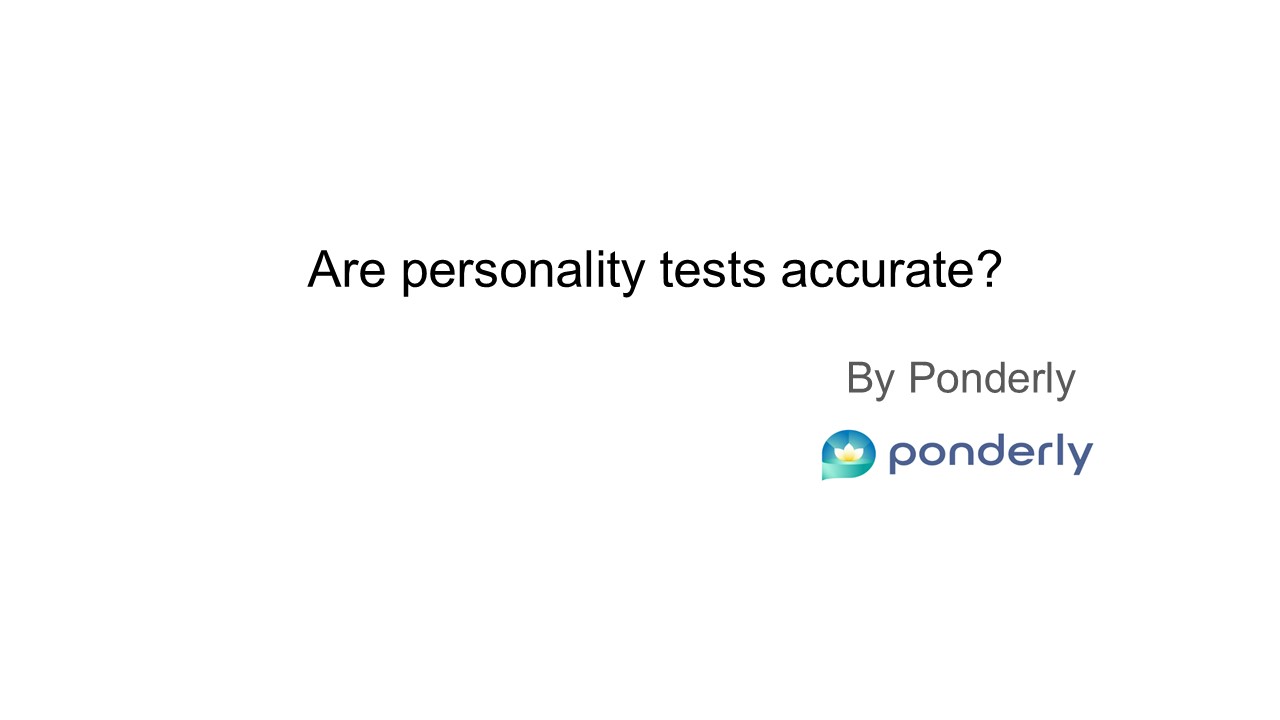Are personality tests accurate? - PowerPoint PPT Presentation
Title:
Are personality tests accurate?
Description:
The US Office of Personnel Management explains that personality tests are designed to 'systematically elicit information about a person's motivations, preferences, interests, emotional make-up, and style of interacting with people and situations.' In 2017, the Harvard Business Review reported that personality testing was a 'roughly $500 million industry, with an annual growth rate estimated at 10% to 15%,' with millions of people taking the tests 'as part of personnel selection, to improve collaboration and teamwork, and to identify satisfying career paths. According to seniorexecutive.com, the top four personality tests that Fortune 500 companies use are the 'MBTI Test, DiSC test, Clifton StrengthsFinder, and the Big Five Personality Test. – PowerPoint PPT presentation
Number of Views:2
Title: Are personality tests accurate?
1
Are personality tests accurate?
By Ponderly
2
Fact Box
- The US Office of Personnel Management explains
that personality tests are designed to
'systematically elicit information about a
person's motivations, preferences, interests,
emotional make-up, and style of interacting with
people and situations.' - In 2017, the Harvard Business Review reported
that personality testing was a 'roughly 500
million industry, with an annual growth rate
estimated at 10 to 15,' with millions of people
taking the tests 'as part of personnel selection,
to improve collaboration and teamwork, and to
identify satisfying career paths. - According to seniorexecutive.com, the top four
personality tests that Fortune 500 companies use
are the 'MBTI Test, DiSC test, Clifton
StrengthsFinder, and the Big Five Personality
Test. - Filmmaker Tim Travers Hawkins' 2021 documentary
Persona The Dark Truth Behind Personality Tests
explores how 'these seemingly harmless
instruments are profoundly discriminatory and
reflective of larger troubling issues of who
exactly is considered worthy and valuable in
society.'
3
(No Transcript)
4
Luke (No)
While taking personality tests online can be fun,
unless the test was written and administered by
psychologists, its results cannot be taken as
entirely accurate. And further, even personality
tests created by professional psychologists, such
as the popular Myers-Briggs, generate unreliable
results as it has been proven that individuals
answer questions differently when taking a test
multiple times.
It's important to note that people generally look
at themselves with rose-colored glasses,
overemphasizing their positive qualities while
minimizing negative ones. Essentially, people
will answer according to what personality they
would like to have rather than what their true
character actually is.
Another issue with personality tests is that the
results are likely to focus on positive qualities
of a person's nature rather than taking a hard
look at any deficiencies. Considering the famous
Myers-Briggs personality test again, the 16
personality types into which the subject is
classified read like a dream book. Each
personality type is exemplified by famous,
successful, and influential people without
mentioning the downsides to each classification.
Even within the psychology community, there is
yet to be a consensus on how to effectively gauge
personalities, especially across cultures. While
much progress has been made in this area, the
concept of human personality remains highly
complex and not quite ascertainable at the
current level of understanding. Given that
personality tests depend on the high bar of
honesty and valid introspection of individuals,
focus generally on only positive aspects of
personality, and are limited in their predictive
qualities, they cannot be considered accurate.
5
Gina (Yes)
For something to stand the test of time, it must
be valid and reliable. The first modern
personality test appeared in 1917 to 'identify
soldiers prone to nervous breakdowns during enemy
bombardment.' More recently, a 2015 study showed
the efficacy of using personality testing in
mental health therapy. However, examination of
human behavior has existed since the beginning of
time.
Hippocrates brought the Four Temperaments theory
into the medical spotlight around 400 BC, but its
study began long before that with the Egyptians.
Humans have wanted to determine why people act
like they do for thousands of years.
Understanding ourselves and our motives can be
very difficult. Personality tests are used to
help us determine our hard-to-define traits--and
they are also highly effective in helping us
understand others. eDarling, a leading European
dating website, uses personality tests to
identify the compatibility of potential couples.
They have recognized the test as one of the
standout reasons for their success, proving that
its effectiveness is enough to base a business
model on.
Further, a broad spectrum from theology schools
to business empires uses personality tests to
help better understand how they can be of value
to the people they are connecting with. Candler
School of Theology at Emory University suggests
'taking a smattering of assessments' to get an
accurate, well-rounded picture of self-knowledge.
And in the business world, a rigorous Journal of
Business and Psychology study concluded that
'personality assessment has high utility in the
workplace.'
6
(No Transcript)































